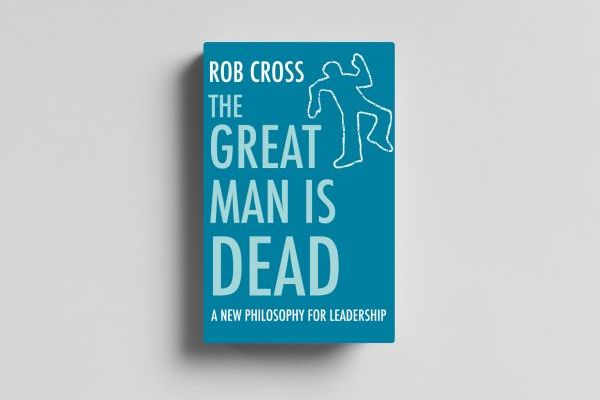An introduction to an innovative philosophy of leadership

When The Great Man is Dead, was first published in 2020, the world was just beginning to feel the tremors of profound, global uncertainty. In the time since, the COVID-19 pandemic has not only shaken every corner of human society, it has also exposed deep fault lines in how we think about leadership.
Amid the fear, disruption, and chaos, many people instinctively turned toward a familiar figure: the strong, singular leader who promised certainty. Across politics, business, and culture, we saw a resurgence of the “Great Man” ideal; leaders who projected unshakable confidence, simple answers, and the comforting illusion of control. In hindsight, it is easy to understand why: in times of collective vulnerability, the promise of decisive authority can be deeply seductive.
And yet, as events have unfolded since the end of the pandemic, it has become increasingly clear that these figures could not deliver the certainty we crave. In fact, doubling down on Great Man leadership often amplified the very uncertainty and division we sought to escape. The complex, interconnected crises of our time – pandemics, climate change, geopolitical instability, economic inequality – cannot be solved by the charisma or will of any single individual. They demand a leadership model that is adaptive, collaborative, and profoundly human.
Ironically, it was not the high-profile “great men” of our era who provided the real leadership through the pandemic. It was ordinary people, including healthcare workers, community organisers, neighbours supporting neighbours, who showed us what true leadership looks like: collaborative, proactive, humble, and resilient.
The reprint of this book comes at a critical moment. Despite overwhelming evidence that the Great Man model is ill-suited to the challenges of the 21st century, its myth continues to lure us back. Our yearning for certainty makes us vulnerable to those who offer it most forcefully—even when it is false.
If anything, the events of the past few years have only reinforced the central argument of this book: that the future of leadership will not be defined by a handful of heroes, but by the strength and leadership capacity of the many.
The Great Man is not just dead—he was never the answer in the first place.
Want to read on? Then here is the exclusive link to read book for free

